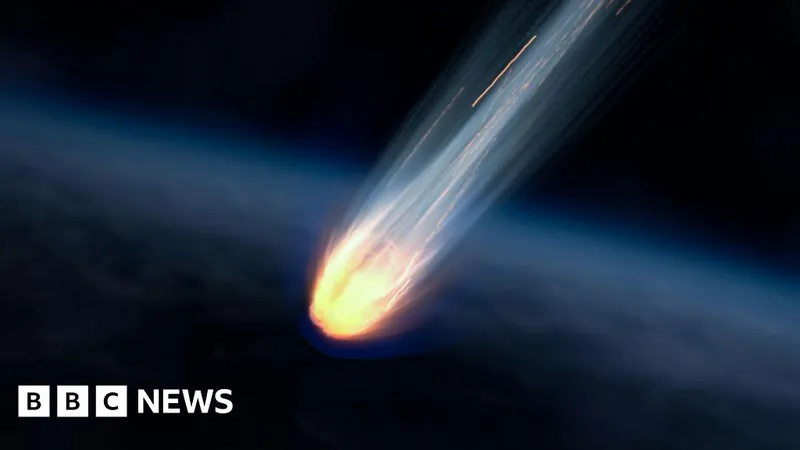
Ancient Meteorite: A Catalyst for Life on Early Earth?
2025-04-30
Author: Charlotte
A Shocking Discovery in Scotland
Scientists have made a groundbreaking revelation about a colossal meteorite impact that rocked north-west Scotland—earlier thought to have taken place 1.2 billion years ago, it actually occurred a staggering 990 million years ago! This new timeline could shed light on how early life forms began to flourish on our planet.
Connecting the Dots: Meteorites and Life
The research, spearheaded by experts from the University of St Andrews and Australia’s Curtin University, draws a tantalizing connection between this meteorite impact and the emergence of freshwater eukaryotes, the ancient ancestors of modern plants, animals, and fungi. Professor Chris Kirkland from Curtin University commented on the implications: 'The revised dating suggests these life forms in Scotland appeared concurrently with the meteorite impact, leading to intriguing questions about how such impacts could have shaped early ecosystems.'
Searching for the Past
While scientists have yet to locate the actual impact crater, this study has unearthed valuable clues that may guide them to its whereabouts. Professor Tony Prave from the University of St Andrews elaborated on the significance of the Stac Fada Member, explaining, 'This site not only captures the moment of the impact but also offers insights into the landscape that existed prior, complete with lush microbial ecosystems thriving in rivers and lakes.'
The Aftermath: A Study of Resilience
What sets Stac Fada apart is its preservation of the original land surface and the ecosystems that recovered from this massive natural event. ‘Impacts usually obliterate the terrain and create deep craters,’ Prave explained, ‘but Stac Fada allows us to study how ancient life bounced back from such a catastrophic event.’ This exceptional finding opens avenues for understanding resilience in the face of destruction.
A Collaborative Effort
This study benefits from collaboration with NASA’s Johnson Space Centre and the University of Portsmouth, highlighting a global effort to decode the mysteries of our planet's formative years. As scientists piece together the puzzle of early life on Earth, this monumental meteorite discovery could be one of the keys to understanding our existence.









 Brasil (PT)
Brasil (PT)
 Canada (EN)
Canada (EN)
 Chile (ES)
Chile (ES)
 Česko (CS)
Česko (CS)
 대한민국 (KO)
대한민국 (KO)
 España (ES)
España (ES)
 France (FR)
France (FR)
 Hong Kong (EN)
Hong Kong (EN)
 Italia (IT)
Italia (IT)
 日本 (JA)
日本 (JA)
 Magyarország (HU)
Magyarország (HU)
 Norge (NO)
Norge (NO)
 Polska (PL)
Polska (PL)
 Schweiz (DE)
Schweiz (DE)
 Singapore (EN)
Singapore (EN)
 Sverige (SV)
Sverige (SV)
 Suomi (FI)
Suomi (FI)
 Türkiye (TR)
Türkiye (TR)
 الإمارات العربية المتحدة (AR)
الإمارات العربية المتحدة (AR)